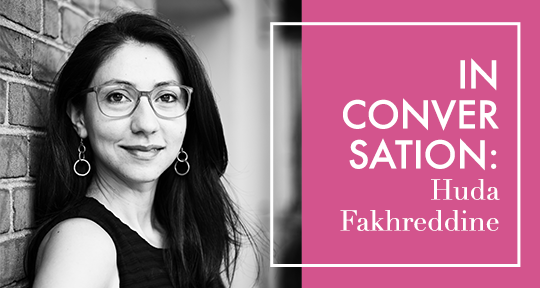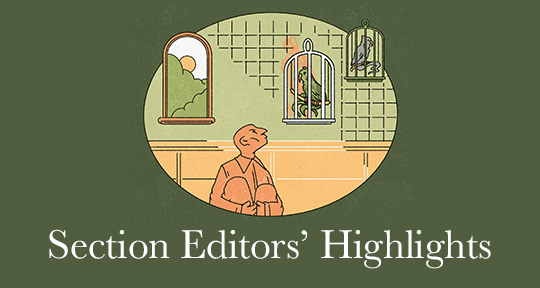Working within the vast world of Arabic poetry, writer, translator, and professor Huda J. Fakhreddine has done much to elucidate the movements of literary forms throughout history, the necessity of constantly interacting with tradition, and the inner universe of poems as they communicate and exchange with one another. Through her extensive knowledge and sensitivity to the capacities of poetic language, Fakhreddine has demonstrated powerfully that, as in a piece by her father that she translated: “Poetry is the deepest sea, distant yet more urgent than surf breaking on rocks.” Here, in this wide-ranging interview, Alton Melvar M Dapanas speaks to her on the importance of form and meter, the necessity of removing Arabic poetry from reductive study, the ongoing engagement of reading and translation, and the intimate way she came to love and feel safe in the world of a poem.
Alton Melvar M Dapanas (AMMD): Certain paradoxes and ironies made an impression in me after reading your latest book, The Arabic Prose Poem (2021): that the Arabic free verse, or the qasīdat al-tafīla, is not “free” in the way of its Anglophone (free verse) and Francophone (vers libre) counterparts, and that Arabic free verse poets like Nāzik al-Malāʾika and later on, Ahmad ʿAbd al-Muʿtī Hijāzī, are, surprisingly, the fiercest opponents of the prose poem.
Huda J. Fakhreddine (HJF): Meter is the marker of poetry in the Arabic tradition, even if symbolically and not fundamentally. It is the fence that separates poetry from other forms—even those that have strong claims to the poetic. The modernist movement of the 20th century was the first organized and theorized effort to jump the fence of meter; this doesn’t mean that the fence was not jumped before, only that it was not done so in such a collective and deliberate manner. The Arabic free verse poem was the result of that formal experimentation or innovation.
But a more accurate label than “free verse” is qaṣīdat al-tafʿīla. The tafʿīla is the single foot or metrical unit, and a pattern of tafʿīlas makes up a meter in classical prosody. The modern poets no longer committed to the meters in their full patterns, but simplified them or reduced them to their building units (the individual tafʿīla), and often in qaṣīdat al-tafʿīla, the poem is built on a single metrical unit and its variations. The term free verse (al-shiʿr al- ḥurr) is thus confusing and not very accurate, since such poems still adhere to metrical considerations. The use of the term free verse is a testament to the influence of translation in the formative years of the Arabic modernist movement—though, as I argue in the book, translation was not that most decisive influence. I think the conversation with the Arabic poetic tradition, even when antagonistic and fraught, is really at the core of that movement, and is the real springboard to its most significant contributions. This is also why the term qaṣīdat al-tafʿīla is the most reflective of the movement’s intervention in form and its thinking about the role of meter.
READ MORE…





